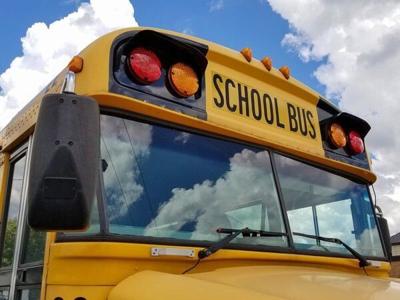Public schools in Louisiana — elementary, secondary and post-secondary — may have to generate a report telling the state what diversity, equity, inclusion and belonging initiatives they use.
A bill, authored by Rep. Emily Chenevert, R-Baton Rouge, would require public schools to submit a one-time report about DEI programs, funding and personnel that were active during the 2021-2022, 2022-2023 and 2023-2024 fiscal years.
Chenevert told House Education Committee members the measure is about transparency. She said diversity is a “great thing” but in some cases the “terminology is used in a way that isn’t always a good thing.
“A lot of these terms are great terms and they're good topics,” she said. “But we want to look at and say what are we spending? Who are the hires? What are the outcomes? What is taking place in some of that when it comes to those specific topics in those initiatives?”
The report could be one page or several pages, she said. Some schools may even submit that they have no DEI programs. It would apply to all public schools, including charter schools, which are sometimes excluded from traditional public school mandates.
Some committee members pushed back and questioned the need for the report, especially on the K-12 level.
Rep. Sylvia Taylor, D-Laplace, asked if the reports would help improve the education system or if it was a “fishing expedition to try to get fuel for the fire to foster a diversity, equity and inclusion attack.”
“We should be concentrating on educating the kids instead of trying to do a fact-finding, fishing expedition trying to find some other information for our target list or whatever agenda we may have,” she said.
DEI initiatives have become a target for Republican lawmakers across the United States who argue those programs elevate racial or gender identity over individual merit, according to the Associated Press.
Rep. Josh Carlson, R-Lafayette, said that most DEI initiatives “started off with the best of intentions” but have morphed into “where we are pushing for equality of outcome and not the equality of opportunity.”
Chenevert’s bill wants schools to report any “program, activity, initiative, event, instruction, action or policy that classifies or references individuals on the basis of race, color, sex, national origin, culture, gender identity or sexual orientation or promotes differential or preferential treatment of individuals on the basis of such classification.”
Chenevert struggled to directly answer her colleagues when pushed to specify whether that just meant programs that had words such as “diversity” and “equity” in their title or if it included programs that supported minority students, such as gifted and talented or English as a second language programs.
She said the report should include "anything that would fall under what a university or what a K-12 would consider part of their diversity, equity, inclusion program.” She also struggled to provide committee members with specific examples of DEI programs, particularly in K-12 schools.
Chenevert said she was working with the Louisiana Board of Regents, which oversees the state’s public higher education institutions, to clarify some of the language in her bill.
The bill moved favorably out of committee on an 8-5-1 vote. Committee Chair Rep. Laurie Schlegel, R-Metairie, abstained. Seven Republicans voted in favor of the bill; one Republican and four Democrats voted against it.
The bill will move to the House floor for debate.

